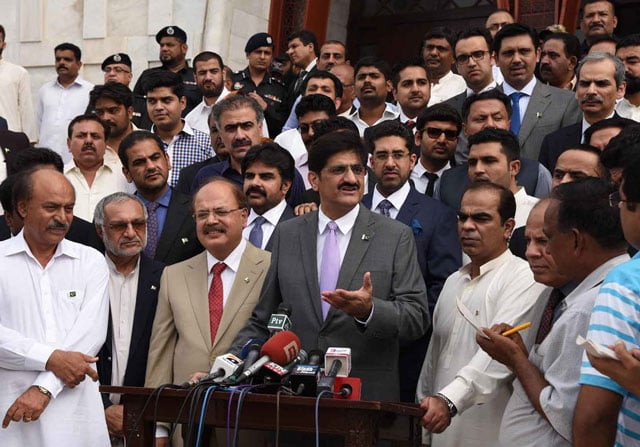Cabinet approves Sindh Human Rights Policy 2023
Policy will be reviewed after every five years

In response to alarming reports of human rights violations in the province, the Sindh cabinet convened on Wednesday to pass the transformative “Sindh Human Rights Policy 2023.”
This policy, spanning five years, endeavours to safeguard the rights of vulnerable segments of society, including women, children, differently-abled individuals, labourers, minorities, and transgenders.
The policy’s draft was prepared collaboratively by the Sindh Human Rights Department in conjunction with the guidance of the Huqooq-e-Pakistan Project team and the Sindh Human Rights Commission.
Soliciting invaluable input from 19 government departments and institutions, along with 24 civil society representatives, ensured a holistic approach towards human rights protection.
Embracing a commitment to uphold fundamental rights enshrined in the Constitution and core United Nations human rights treaties ratified by the nation, the policy stands as a testament to Sindh’s dedication to international obligations.
The policy sets forth a comprehensive framework, encompassing two fundamental rights categories: “civil and political rights” and “economic, social, and cultural rights.”
With an unwavering focus on preserving life, liberty, and security, the former also guarantees access to justice and the right to information (RTI).
Addressing the latter category, the policy champions the cause of workers’ rights, advocates for accessible healthcare, promotes education as a cornerstone of societal development, champions cultural rights, and champions environmental preservation.
Scheduled to span from 2023 to 2027, this policy will undergo periodic reviews to align with the latest global developments and adapt to the ever-evolving human rights landscape.
During the cabinet meeting, chaired by Chief Minister Syed Murad Ali Shah at the CM House, several other pressing issues came under discussion. Among the noteworthy decisions made were the allocation of a generous Rs2 billion grant-in-aid for the Sindh Institute of Urology and Transplantation (SIUT) and an additional Rs5 billion to retire the outstanding Bridge Finance facility for the Ghotki-Kandhkot bridge.
In a move to empower healthcare institutions further, the meeting endorsed the transfer of the Benazir Institute of Urology & Transplantation (BIUT) building to SIUT, alongside an ADP allocation of Rs.101.400 million (Revenue Component) and a supplementary grant of Rs.767.877 million to acquire essential machinery, equipment, and furniture.
Additionally, the approval of Rs.1.5 billion as operational costs to SIUT reflects the government’s steadfast support for this indispensable institution.
The cabinet also granted permission to the Medical Emergency and Resilient Foundation (MERF), a revered national NGO, to continue its commendable work, preserving eight health facilities.
Published in The Express Tribune, August 3rd, 2023.


















COMMENTS
Comments are moderated and generally will be posted if they are on-topic and not abusive.
For more information, please see our Comments FAQ